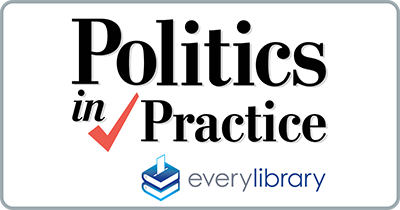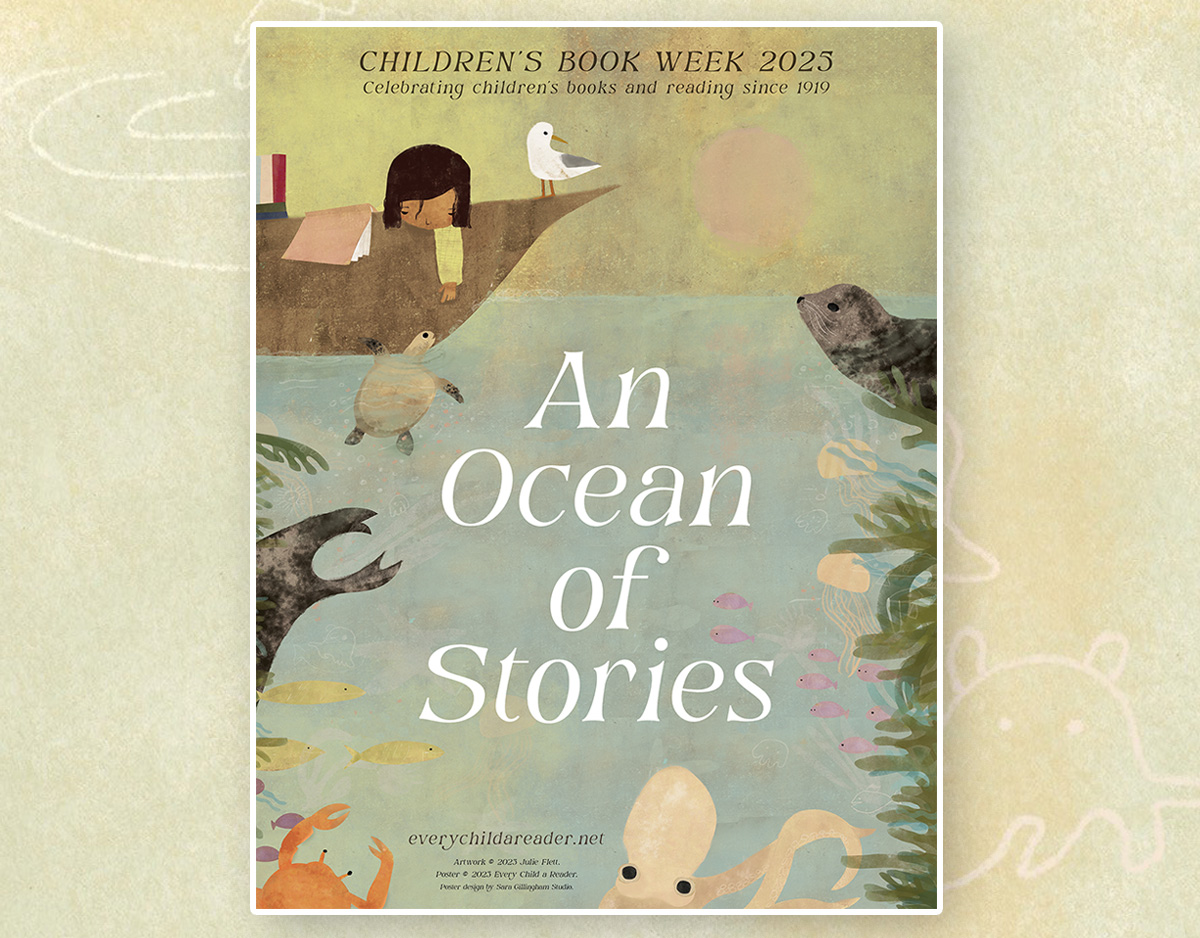When Book Bans are a Form of Discrimination, What is the Path to Justice?
By Guest Writer Kavita Mohan* for EveryLibrary
As we previously discussed in Politics in Practice (May 2023), U.S. Department of Education’s Office of Civil Rights (OCR) entered into a Resolution Agreement with the Forsyth County School District in Georgia following its investigation into whether the District’s removal of certain books from schools created a hostile environment for students based on sex, in violation of Title IX of the Education Amendments of 1972 (Title IX), and on the basis of race, in violation of Title VI of the Civil Rights Act of 1964 (Title VI).
Forsyth was the first book banning case to have been resolved using OCR’s Title IX and Title VI complaint process. A key aspect of the Resolution Agreement reached with the Forsyth County Schools was that the District expressed its interest in resolving the complaint and was willing to reach an agreement. Other cases have been filed and appear to be still pending, such as the complaint filed by the ACLU against the Granbury Independent School District, which has not yet been resolved, and other recent complaints filed by the National Women’s Law Center against the Cobb County School District and the Collier County Public School District, filed in May of this year. As these cases conclude, more information will become available about the efficacy of OCR’s process.
OCR explained in its accompanying letter to Forsyth County Schools regarding the results of its investigation that it was concerned that the District had received notice its media center book screening process may have created a racially and sexually hostile environment for students and that the District’s response was insufficient. As part of the resolution agreement, the District was required to take multiple steps to address the concerns OCR raised, including the following:
- Issuing a statement to students in the District explaining the library book removal process and offering support to students who may have been impacted by that process;
- Administering a climate survey of the student bodies at the District’s middle and high schools to assess whether additional steps need to be taken; and,
- Implementing ongoing monitoring until OCR is satisfied that the federal laws at issue are satisfied.
How OCR Can Help
As demonstrated by the outcome of the Forsyth County challenge, combatting book bans through OCR may, in some cases, be more efficient and effective than litigation. OCR has a number of tools at its disposal to resolve complaints, such as the following:
- Facilitated Resolution Between the Parties (FRBP): If both parties are willing and if OCR determines that FRBP is appropriate, OCR can facilitate settlement discussions. OCR will not monitor any resulting agreement, but if the recipient does not comply with the terms, the complainant may file another complaint.
- Resolution Agreement: If the recipient of a complaint expresses interest in resolving the complaint prior to completion of the investigation, the parties can enter into a resolution agreement (as in the Forsyth case). The provisions of the resolution agreement must be tied to the allegations in the complaint.
- Full Investigation of the Complaint: OCR can conduct a full investigation of the complaint as a neutral fact finder. If a preponderance of evidence supports a conclusion that the recipient failed to comply with the law, OCR will attempt to negotiate a voluntary resolution agreement. If an agreement cannot be reached, OCR may initiate proceedings to suspend, terminate, or refuse to grant or continue Federal financial assistance to the recipient, or may refer the case to the Department of Justice.
The steps for filing a complaint with OCR are provided below.[1]
Step One: Should You File A Complaint With OCR?
Filing a complaint with OCR may be warranted if the entity at issue receives federal funding and has instituted book bans relating to sexual or gender orientation, or on issues of race, critical race theory, or other such topics.
Essentially, all state education agencies, elementary and secondary school systems, colleges and universities, vocational schools, proprietary schools, state vocational rehabilitation agencies, libraries and museums that receive federal financial assistance are required to comply with several Federal civil rights laws that prohibit discrimination in programs or activities that receive federal financial assistance. This includes all public schools and most public and private colleges and universities.
Title VI and Title IX are the most relevant in the book banning context. Title IX prohibits discrimination on the basis of sex. Title IX has also been interpreted to protect against discrimination the basis of sexual orientation and gender orientation. Title VI prohibits discrimination on the basis of race, color, and national origin. [2]
Step Two: Who Will File
Anyone can file a complaint, including a person or organization who is not the alleged victim, but is filing on behalf of another person or group. If the complainant is filing on behalf of another individual, they must obtain written consent from that alleged victim. It is not necessary to have a lawyer to file a complaint with OCR.
Step Three: When to File
Complainants should file within 180 days of the last act of discrimination. If more than 180 days have passed, the complainant will need to seek a waiver and must demonstrate good cause for not filing sooner.
Step Four: What To File
If you are filing a complaint, you may use OCR’s Discrimination Complaint Form. However, it is not necessary to use this form. Complainants may also simply provide the information requested in Questions 1-15 of the form in the form of a letter or e-mail. The following information must be provided in the complaint:
- Name and contact information for the person filling the firm.
- Name and contact details of the person being discriminated against. If you are filing on behalf of another individual, you must obtain their consent or their parents, guardian, or authorized legal representative, if the individual is a minor. The consent form is at the end of OCR’s Discrimination Complaint Form.
- Name and address of the institution.
- The basis of your complaint and the type of discrimination that was experienced.
- Specific details about each discriminatory act, including the name(s) of the individuals involved and any other witnesses.
- Any documents or written information to support your claims.
- The most recent date of the discriminatory action.
- If the date was more than 180 days ago, a request for a waiver of the 180-day deadline. The complainant must provide good cause for missing the deadline.
- Information about any other complaints have been filed (e.g., internal school complaint, formal grievance process).
- Information about whether there are any other pending cases before other Federal, state, or local agencies or any other Federal or state court.
- Name and contact information for your lawyer, if you have one.
- Information for another relative or friend in case you cannot be reached (optional).
- Indicate whether you are open to participating in OCR’s early mediation process. If you are interested in early mediation, you must submit a consent form to OCR.
- Information about the remedy sought.
- Complainants must sign and date their complaints.
Step Five: How to File
Once the complaint has been prepared, it can be mailed or e-mailed along with the consent forms and any supporting documentation. The forms should be sent to the OCR Enforcement Office responsible for the state where the institution or entity about which you are complaining is located. You can locate the mailing information for the correct enforcement office on OCR’s website at https://ocrcas.ed.gov/contact-ocr. If e-mailing the complaint, it can be sent to ocr@ed.gov.
What Happens Next
Assuming that your complaint has been filed within 180 days of the most recent incident, OCR will next determine whether the complaint has enough information to proceed with its investigation. It may contact you to gather more information. If OCR reaches out for more information, you will have 14 calendar days to respond.
Once OCR has determined it will open the complaint for investigation, the complainant and recipient will both be notified. OCR will then act as a neutral factfinder, seeking information from all parties and other sources as appropriate. Among other things, OCR may conduct interviews and/ or site visits.
Once OCR’s investigation is complete, it will send a Letter of Findings to the complainant and recipient.
More information about OCR’s investigation process is available on OCR’s website and in OCR’s Case Processing Manual.
***
*Kavita Mohan is an attorney and lifelong library enthusiast. The views expressed in this article are solely hers and provided in her capacity as a volunteer at EveryLibrary. The information provided in this post does not, and is not intended to, constitute legal advice; instead, all information, content, and materials available here are for general informational purposes only. Information on this post may not constitute the most up-to-date legal or other information. Readers of this post should contact an attorney to obtain advice with respect to any particular legal matter.
[1] A summary of the steps to file a complaint with OCR is also provided on the Department of Education’s website. See U.S. Department of Education, File a Complaint: Discrimination Form (last reviewed Sept. 18, 2024), https://www.ed.gov/laws-and-policy/civil-rights-laws/file-complaint/discrimination-form-us-department-of-education.
[2] Id. OCR also enforces laws that prohibit discrimination against persons with disabilities or based on age.
Filed under: Censorship, News
About John Chrastka
EveryLibrary’s founder is John Chrastka, a long-time library trustee, supporter, and advocate. John is a former partner in AssociaDirect, a Chicago-based consultancy focused on supporting associations in membership recruitment, conference, and governance activities. He is a former president and member of the Board of Trustees for the Berwyn (IL) Public Library (2006 – 2015) and is a former president of the Reaching Across Illinois Libraries System (RAILS) multi-type library system. He is co-author of “Before the Ballot; Building Support for Library Funding.” and “Winning Elections and Influencing Politicians for Library Funding”. Prior to his work at AssociaDirect, he was Director for Membership Development at the American Library Association (ALA) and a co-founder of the Ed Tech startup ClassMap. He was named a 2014 Mover & Shaker by Library Journal and tweets @mrchrastka.
ADVERTISEMENT
ADVERTISEMENT
SLJ Blog Network
One Star Review Guess Who?
A Foolish Interview for a Foolish Biography: Wolverton Hill (a.k.a. Barry Wolverton) Talks Lear
Detectives These Days Are Crazy!, vol. 1 | Review
Heavy Medal Suggestions: 73 Titles and Counting
ADVERTISEMENT






